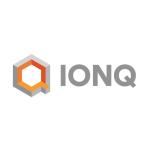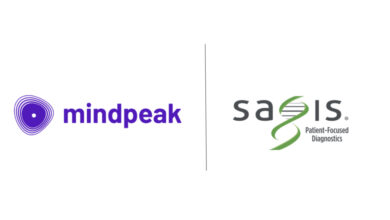IonQ Announces New Barium Qubit Technology, Laying Foundation for Advanced Quantum Computing Architectures

Barium qubits are highly stable and offer many ways to increase computing fidelity and speed
Technology allows IonQ to use standard photonics devices to build more reliable quantum computers
Barium enables IonQ to more easily network its computers together, forming powerful modular systems that quickly scale qubit counts
COLLEGE PARK, Md.–(BUSINESS WIRE)–IonQ, Inc. (“IonQ”) (NYSE: IONQ), a leader in quantum computing, today announced that it plans to use barium ions as qubits in its systems, bringing about a wave of advantages it believes will enable advanced quantum computing architectures. IonQ is the first quantum computing company able to harness more than one atomic species as qubits, having built its systems to date with ytterbium ions. Now, IonQ plans to use barium ions to build systems that are designed to be faster, more powerful, more easily interconnected, and that feature more uptime for customers.
“IonQ builds the world’s most powerful quantum computers, and the ability to build systems with barium qubits will help us bring our customers even closer to realizing the commercial benefits of quantum,” said Peter Chapman, President and CEO of IonQ. “We believe the advanced architectures enabled by barium qubits will be even more powerful and more scalable than the systems we have been able to build so far, opening the door to broader applications of quantum computing.”
IonQ expects the key benefits of quantum computers based on barium qubits to include:
- Lower error rates, higher gate fidelity, and better state detection. IonQ’s quantum computers already outperform industry peers, as demonstrated in an industry study by the Quantum Economic Development-Consortium in October. IonQ expects barium qubits to improve the performance of its quantum gates and qubit measurement, leading to even more useful quantum computers.
- A foundation for iterable, more reliable hardware, with more uptime for customers. Barium qubits are controlled primarily with visible light—rather than ultraviolet light—allowing IonQ to build its future quantum computers with standard silicon photonics technology. Visible light devices are easier to source and more reliable than their ultraviolet equivalents. Using standard technology will allow IonQ to scale its computers and replace components more easily, providing more computing time for customers than ever before.
- More easily networked quantum systems. IonQ plans to connect multiple quantum processing units together with light, creating a modular system with greatly improved processing power. Barium qubits pave the way for higher levels of device integration and easier networking of multiple systems.
“We believe that the addition of barium qubits to IonQ systems opens up tremendous technical opportunities for making our systems more scalable, more reliable, and easier to build,” said Jungsang Kim, Co-Founder and CTO of IonQ. “By leveraging the inherent advantages of barium qubits, we plan to access new features for building advanced quantum computers that we believe will be relevant for solving critical societal problems.”
This announcement builds upon a series of technology milestones achieved by IonQ in recent months. IonQ’s future systems will include specially designed Evaporated Glass Traps (EGTs), which were introduced earlier this year as a means to make trapped ion technology even more stable and accurate. Earlier this year, IonQ also unveiled a reconfigurable multicore quantum architecture (RMQA), which IonQ expects to rapidly increase the number of qubits in each system. IonQ believes its systems are poised to continue exceeding expectations with the use of barium qubits.
About IonQ
IonQ, Inc. is a leader in quantum computing, with a proven track record of innovation and deployment. IonQ’s next-generation quantum computer is the world’s most powerful trapped-ion quantum computer, and IonQ has defined what it believes is the best path forward to scale. IonQ is the only company with its quantum systems available through the cloud on Amazon Braket, Microsoft Azure, and Google Cloud, as well as through direct API access. IonQ was founded in 2015 by Christopher Monroe and Jungsang Kim based on 25 years of pioneering research. To learn more, visit www.ionq.com.
Forward-Looking Statements
This press release contains certain forward-looking statements within the meaning of Section 27A of the Securities Act of 1933, as amended, and Section 21E of the Securities Exchange Act of 1934, as amended. Some of the forward-looking statements can be identified by the use of forward-looking words. Statements that are not historical in nature, including the words “anticipate,” “expect,” “suggests,” “plan,” “believe,” “intend,” “estimates,” “targets,” “projects,” “should,” “could,” “would,” “may,” “will,” “forecast” and other similar expressions are intended to identify forward-looking statements. These statements include those related to IonQ’s ability to further develop and advance its quantum computers and achieve scale; the potential benefits of using barium ions to build its systems; IonQ’s market opportunity and anticipated growth; and the commercial benefits to customers of using quantum computing solutions. Forward-looking statements are predictions, projections and other statements about future events that are based on current expectations and assumptions and, as a result, are subject to risks and uncertainties. Many factors could cause actual future events to differ materially from the forward-looking statements in this press release, including but not limited to: market adoption of quantum computing solutions and IonQ’s products, services and solutions; the ability of IonQ to protect its intellectual property; changes in the competitive industries in which IonQ operates; changes in laws and regulations affecting IonQ’s business; IonQ’s ability to implement its business plans, forecasts and other expectations, and identify and realize additional partnerships and opportunities; and the risk of downturns in the market and the technology industry including, but not limited to, as a result of the COVID-19 pandemic. The foregoing list of factors is not exhaustive. You should carefully consider the foregoing factors and the other risks and uncertainties described in the “Risk Factors” section of IonQ’s Quarterly Report on Form 10-Q for the quarter ended September 30, 2021 and other documents filed by IonQ from time to time with the Securities and Exchange Commission. These filings identify and address other important risks and uncertainties that could cause actual events and results to differ materially from those contained in the forward-looking statements. Forward-looking statements speak only as of the date they are made. Readers are cautioned not to put undue reliance on forward-looking statements, and IonQ assumes no obligation and does not intend to update or revise these forward-looking statements, whether as a result of new information, future events, or otherwise. IonQ does not give any assurance that it will achieve its expectations.
Contacts
IonQ Media Contact:
Mission North
[email protected]
IonQ Investor Contact:
Michael Bowen and Ryan Gardella
[email protected]



